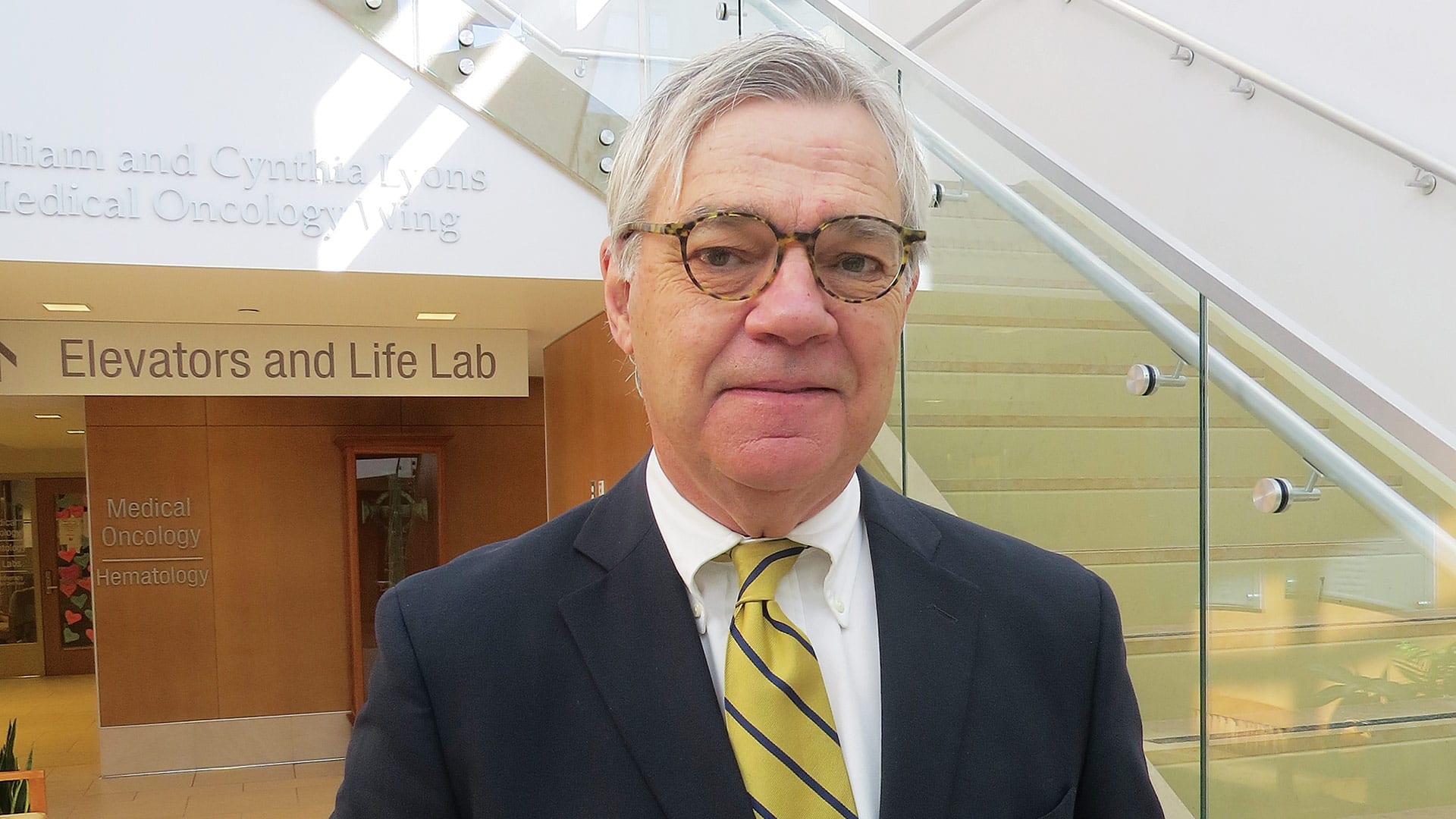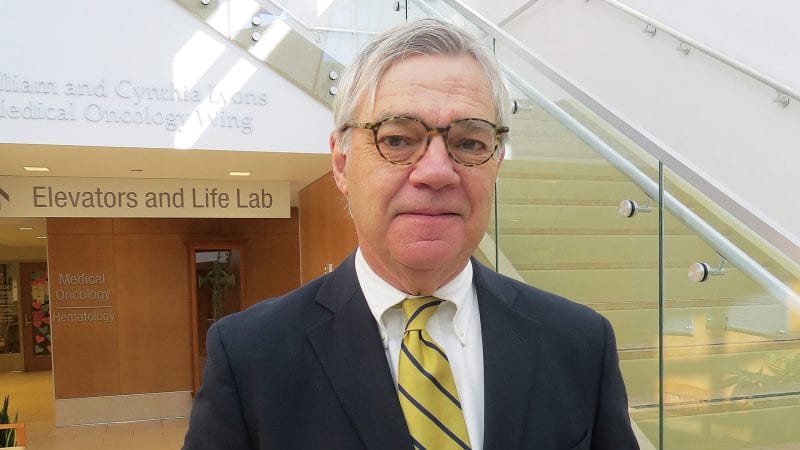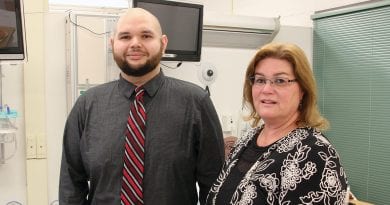Sister Caritas Cancer Center
Extra Caution, Vigilance Needed for the Most Vulnerable of Patients
As doctors’ offices begin opening for more than emergency treatments, Dr. Phillip Glynn, an oncologist with Mercy Medical Center, said he and his staff at the Sister Caritas Cancer Center are using extra vigilance because their patients have unique vulnerabilities.
“Patients receiving cancer treatments are much more predisposed to potential catastrophic problems if they are exposed to the virus,” said Glynn, adding that, even though more patients will be coming in for routine appointments, they are not there for “well visits.”
Before anyone can go through the doors of the Oncology Services clinic, they have to check in at a separate screening area where they are greeted by staff in full personal protective equipment (PPE). Every person must fill out a health questionnaire and have their temperature taken before they are allowed entry.
Before COVID-19, family members would often sit with loved ones as they received their cancer treatment. Under the new protocols, only the patient is allowed in the clinic.
“That means the patient gets dropped off and no one can accompany them,” Glynn said. “That’s a hard thing to do, and yet, people have been remarkably accepting of it.”
“Patients receiving cancer treatments are much more predisposed to potential catastrophic problems if they are exposed to the virus.”
Glynn said the separate check-in area and limiting who can enter is essential because Mercy maintains a busy infusion center where patients receive vital cancer treatments that leave them with weakened immune systems.
“Before COVID-19, we would see 80 to 90 patients a day,” Glynn told HCN. “Now, we’re very careful about allowing people near that area, but we’re still seeing around 70 patients a day because they really need their treatment.”

Glynn said he uses telemedicine whenever possible to limit patient exposure during their cancer treatment. COVID-19 has caused Glynn and his colleagues to consider different approaches to keep patients safe and provide effective therapy. Ideas on the table include alternative scheduling of patients from weekly visits to once every three weeks, as well as providing some services in the home.
“Other people might be able to use oral agents for their cancer treatment,” he added. “We’re exploring this to see if we can switch them over safely so they don’t have to come to the infusion center for therapy.”
Until there are adequate treatment options or a vaccine for the virus, Glynn said the new normal will have to include extra screening protocols and limiting who enters the clinic. He empathizes with patients and their families because a cancer diagnosis is already a difficult journey.
“It’s an added hassle at a time when you want to minimize your hassles,” he said, acknowledging that this is a challenging environment where staff are constantly reinforcing the need to be vigilant every day to make sure their patients stay safe. “We just can’t let our guard down.”
—Mark Morris




